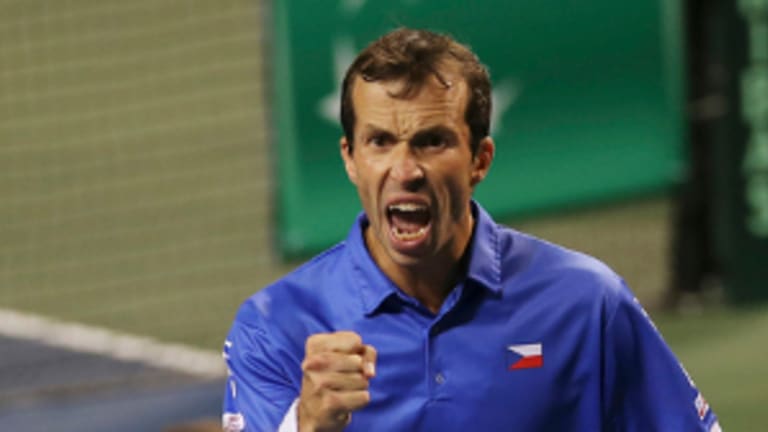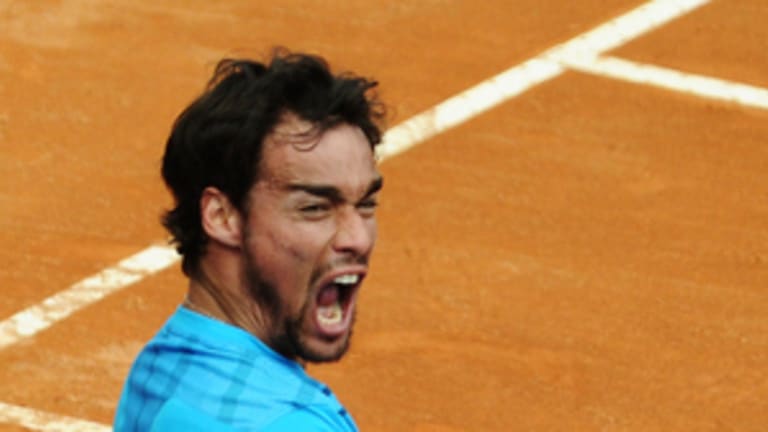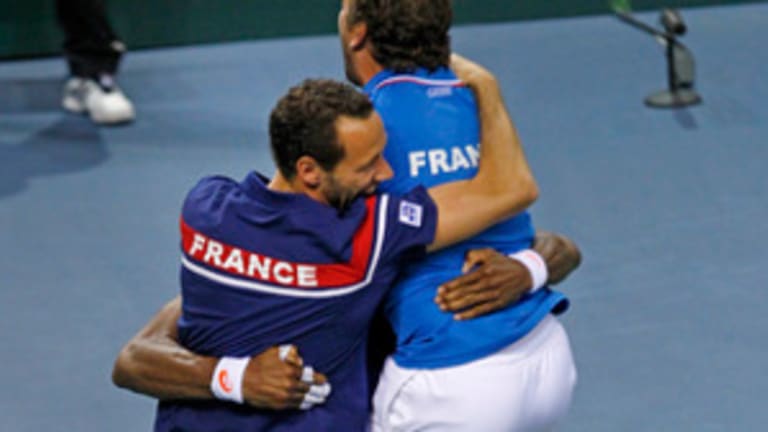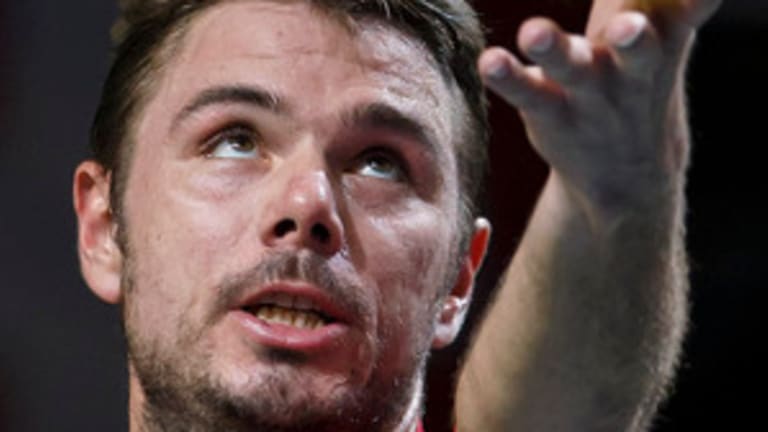The Swiss, whose top players are fully committed to the Davis Cup for the first time in many years, learned this week that there are spooky disadvantages as well as obvious benefits to being the overwhelming favorites to win the competition.
The Swiss were in the catbird seat against Kazakhstan for obvious reasons: Roger Federer, the 17-time Grand Slam champion, wasn’t even the No. 1 player on the team. That distinction fell to Stanislas Wawrinka, who’s ranked one tick above Federer at No. 3.
Wawrinka quickly abused his vaunted station by falling prey to the pressures of Davis Cup. To be sure, the Kazakhs were a remarkably game bunch, from the moment the first ball was hit until the last shot—a Federer serve that left Andrey Golubev lunging in vain to return—was fired to end the weekend.
In the first rubber, Golubev got off the a good start and never let up. Had he done so, Wawrinka might have found the confidence to breathe easier and dial in his big game. But Golubev held firm, and while Wawrinka held his own for reasonable periods, he fell victim to a combination of his own nerves and his opponent’s flat, stinging shots. Wawrinka undoubtedly felt the full weight of the expectations as Golubev won in four sets, bookended by tiebreakers.
Federer got the Swiss back on the right track in the second rubber, though, with a neat and systematic deconstruction of Mikhail Kukushkin. But even that wasn’t enough to settle Wawrinka’s nerves. In the doubles, he was less the familiar bull in a china shop than a deer in the headlights, and the Kazakhs mercilessly pounded away at him. Federer and Wawrinka are Olympic gold medalists in doubles (2008) but it didn’t matter much. Kazakhstan won the doubles in four close sets, two of them settled in tiebreakers.
All of Switzerland held its collective breath when Wawrinka met Kukushkin in the war of the No. 1s. They continued to hold it together and began to turn purple when Wawrinka lost the first set in a tiebreaker. But at the brink of disaster, with the Swiss two sets from elimination, Wawrinka mastered his fluttering stomach, and once again his arm began to flex at the elbow. He worked his way back into the match and won each of the next three sets by 6-4.
That set the stage for a vintage Federer moment. Golubev played well in the decisive fifth rubber, but Federer navigated a first-set tiebreaker without the loss of a point, and then lost just five more games to close out the tie.
In a way, the adventure suggested that Federer had good reason to avoid full commitment to Davis Cup in previous years. The competition makes enormous demands, but it has unique, towering rewards as well.



